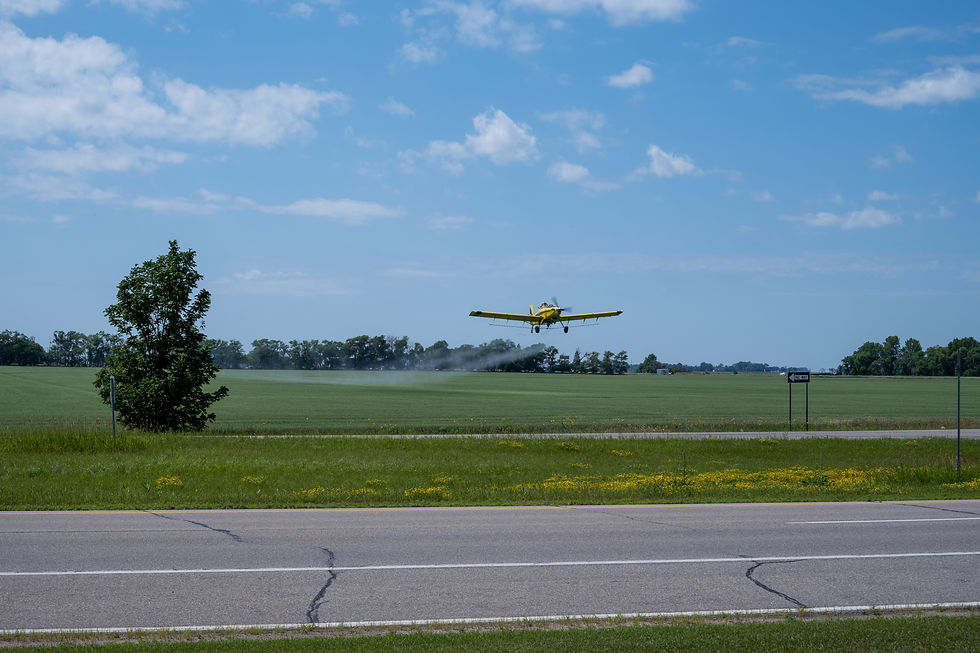Bees and the Impact of Climate Change
- Planet Bee Foundation

- Jun 6, 2024
- 3 min read
Updated: Jun 6, 2024
In the delicate balance of nature, bees play a critical role as pollinators, supporting the reproduction of countless plant species and contributing to the stability of ecosystems worldwide. However, the looming threat of climate change is putting unprecedented pressure on bee populations, exacerbating existing challenges and jeopardizing their essential role in food production and biodiversity. In this blog, we'll explore the complex relationship between bees and climate change and discuss the urgent need for action to protect these invaluable pollinators.

Disruption of Flowering Patterns: Altered Timing and Availability
Climate change is disrupting the delicate synchronization between bees and the flowering plants they rely on for food. Rising temperatures and shifting weather patterns are causing alterations in the timing and availability of flowering plants, leading to mismatches between bees and their preferred nectar and pollen sources. As a result, bees may struggle to find adequate food resources, leading to reduced reproductive success and population declines.
Habitat Loss and Fragmentation Cause Shrinking Bee Populations
The loss and fragmentation of habitat due to human activities, such as urbanization, agriculture, and deforestation, are further exacerbating the impact of climate change on bee populations. Fragmented habitats make it difficult for bees to find suitable nesting sites and forage for food, limiting their ability to establish and maintain healthy colonies. As habitats continue to shrink and degrade, bee populations face increased pressure and are at greater risk of extinction.

Extreme Weather Events Increase Stress and Mortality
The increasing frequency and intensity of extreme weather events, such as heatwaves, droughts, floods, and storms, pose significant threats to bee populations. These events can disrupt bee foraging activities, damage nesting sites, and destroy food sources, leading to increased stress and mortality among bee colonies. Additionally, extreme weather events can exacerbate other threats, such as habitat loss and pesticide exposure, further compromising bee health and resilience.

Pesticide Exposure Heightened Vulnerability to Toxins
Pesticides, including neonicotinoids and other agricultural chemicals, pose a significant threat to bee health and survival, especially in the context of climate change. Rising temperatures and changing weather patterns can increase the persistence and toxicity of pesticides in the environment, amplifying their impact on bee populations. Pesticide exposure can weaken bees' immune systems, impair their navigational abilities, and disrupt their reproductive cycles, making them more vulnerable to other stressors.
Complex Solutions for a Complex Problem
Addressing the challenges posed by climate change requires comprehensive and coordinated conservation efforts aimed at protecting bee habitats, reducing greenhouse gas emissions, and promoting sustainable land management practices. Conservation initiatives such as habitat restoration, pollinator-friendly farming practices, and pesticide regulation are essential for supporting bee populations and mitigating the impacts of climate change. Additionally, public awareness and education campaigns can help raise awareness about the importance of bees and inspire collective action to address the root causes of climate change.

Protecting Pollinators in a Changing World
Bees are facing unprecedented challenges due to climate change, posing significant threats to their health, populations, and ecological roles. As stewards of the environment, it is our collective responsibility to take action to protect these invaluable pollinators and safeguard the ecosystems they support. By addressing the root causes of climate change, reducing habitat loss and fragmentation, and promoting bee-friendly conservation practices, we can help ensure a brighter future for bees and the vital services they provide to ecosystems and society.
Creating the Change Makers of Tomorrow
Educating youth to be environmental stewards and protectors of the earth is essential for the future of climate change. Education empowers the next generation to make informed decisions and take action to protect our planet.





